Do you need wifi for solar panels? Are you looking to harness the sun’s energy and install solar panels on your property? You may be wondering what components are necessary for a successful set-up. While researching, you may have encountered phrases like ‘smart meters’ or found yourself asking, do I need Wi-Fi to make them work?
No, solar charge controller panels do not require Wi-Fi to function effectively. They convert sunlight into electricity independently. However, Wi-Fi is useful for monitoring your system’s performance and energy usage in real-time through smart devices.
If so, you’re in the right place. In this blog post, we will discuss what it takes to maximize efficiency with today’s digital technology – from monitoring system performance to getting feedback on how much energy is being generated by individual rooftop solar panels! We’ll provide tips and insights on ensuring your solar installation works as effectively and efficiently as possible. Let’s dive in!
Benefits of Solar Panels
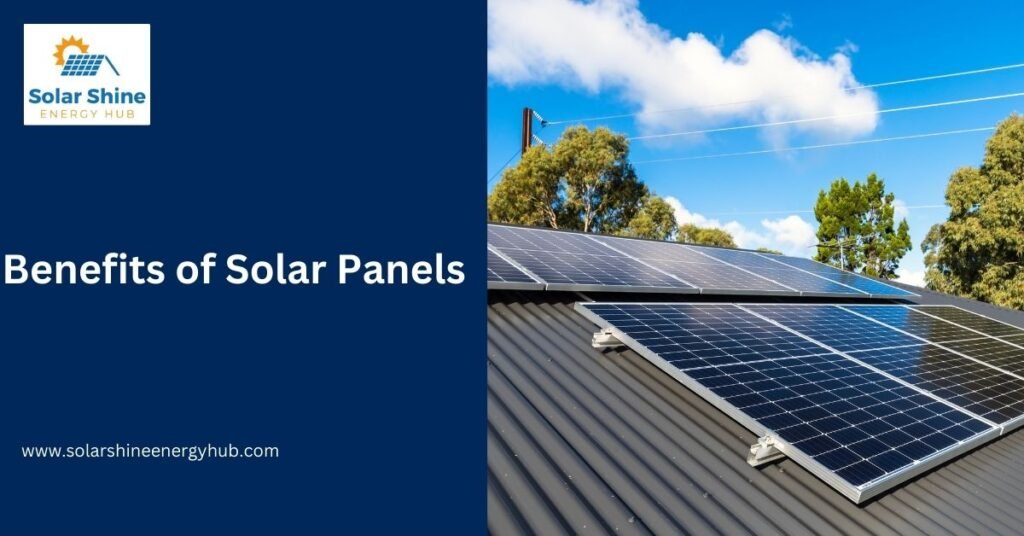
- Solar panels significantly reduce, if not eliminate, usable electricity bills, saving homeowners thousands of dollars over time.
- By harnessing renewable energy from the sun, they contribute to a sustainable, environmentally friendly future.
- Solar panel systems often increase property value, making it a worthwhile investment for homeowners planning to sell in the future.
- With advancements in technology, solar panels can generate electricity even on cloudy days, ensuring a consistent power supply.
- Many regions offer tax incentives and rebates for solar panel installation, making it an economically attractive option.
Advantages of wifi-enabled Solar Panels
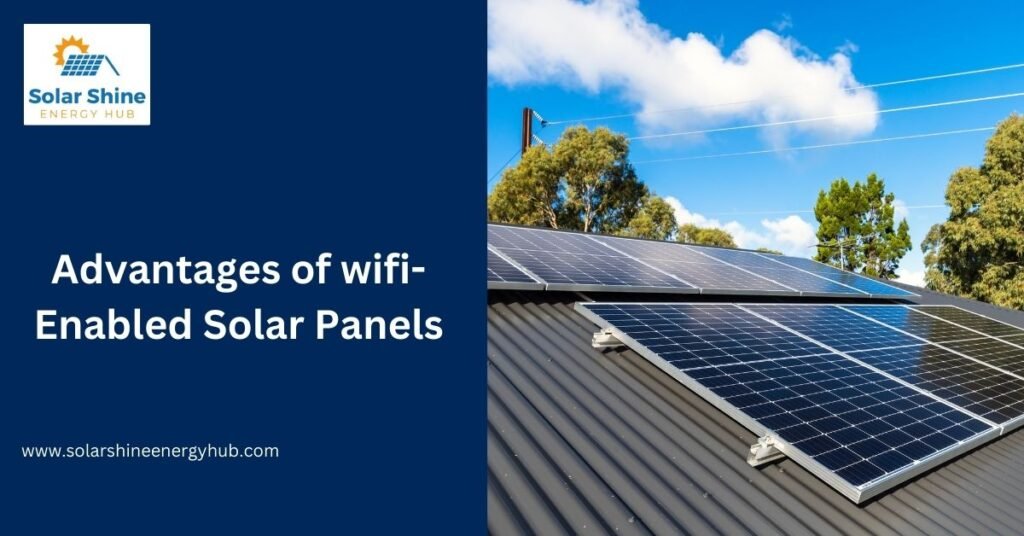
- Wi-Fi-enabled solar panels allow for real-time, remote monitoring of system performance.
- With Wi-Fi connectivity, you can track energy production and consumption, optimizing usage.
- Remote troubleshooting is possible with Wi-Fi-enabled panels, facilitating easier maintenance.
- Wi-Fi connectivity allows for seamless integration with other smart home devices and systems.
- It enables software updates and enhancements, ensuring your system remains state-of-the-art.
Installing Solar Panels at Home
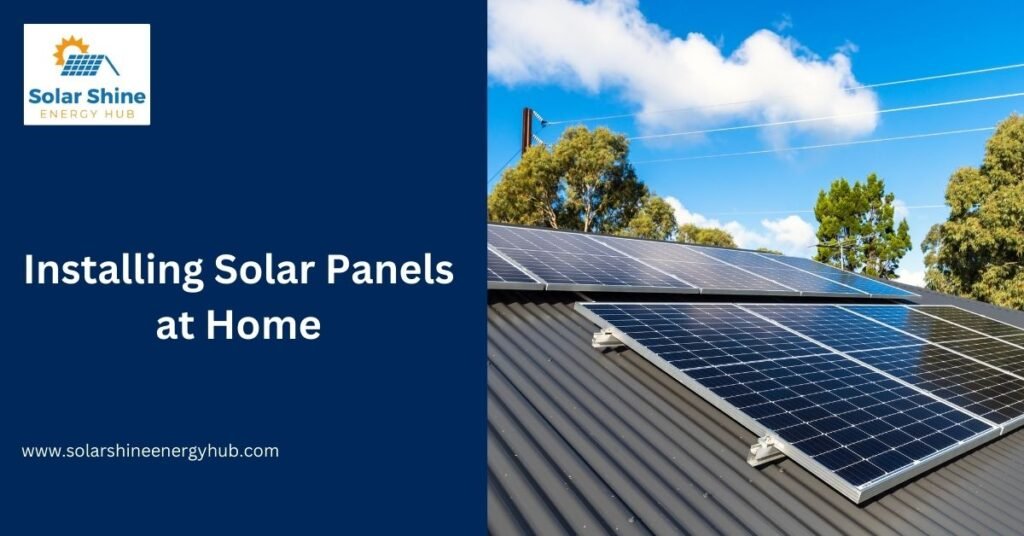
- Start by determining the ideal location for your solar panels. The most effective placement is usually on a south-facing roof, as it gets the most sunlight throughout the day.
- Be sure to have a qualified professional perform your solar panel installation. They will ensure the setup is correctly optimized for efficiency and safety.
- Depending on your location, you may need to get a permit before installing your solar panels. Check local regulations and requirements to avoid potential issues.
- Consider the size of your solar panel system; this will depend on your energy consumption and the amount of sunlight your property receives.
- After installation, ensure your system is connected to the grid. This allows excess maximum power output to be sold back to the power optimizers company, potentially offsetting your flow of electricity costs.
Maintenance and Efficiency Tips
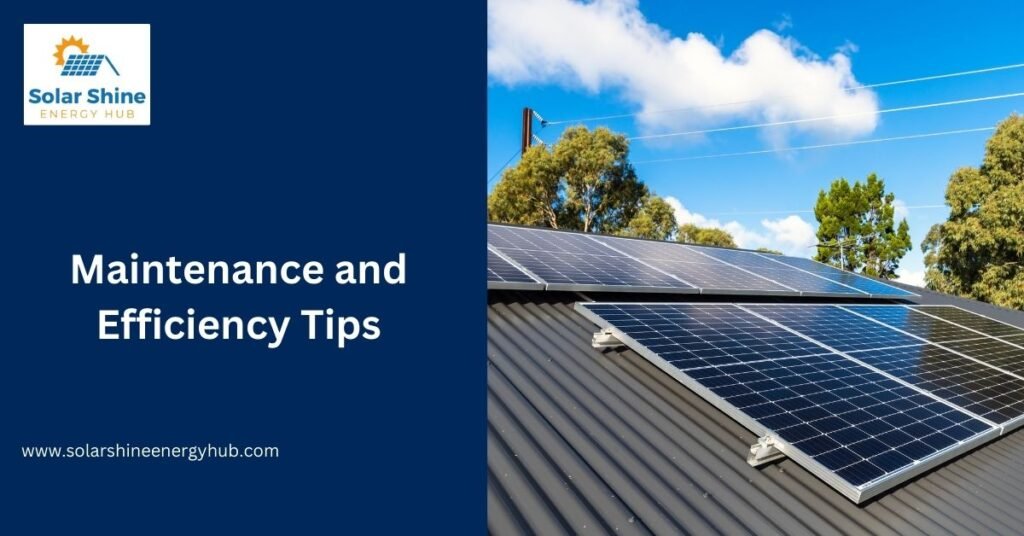
- Regularly clean energy your solar panels to remove dust and debris that can reduce their efficiency.
- Monitor your system’s performance frequently to identify and address any potential issues early.
- Optimize energy usage by running heavy appliances during peak solar production hours.
- Consider pairing your solar panels with a battery storage system to leverage excess maximum power produced during the day for use during nighttime or cloudy days.
- Schedule periodic professional maintenance checks to ensure the longevity and efficiency of your solar panel system.
Optimizing Energy Output
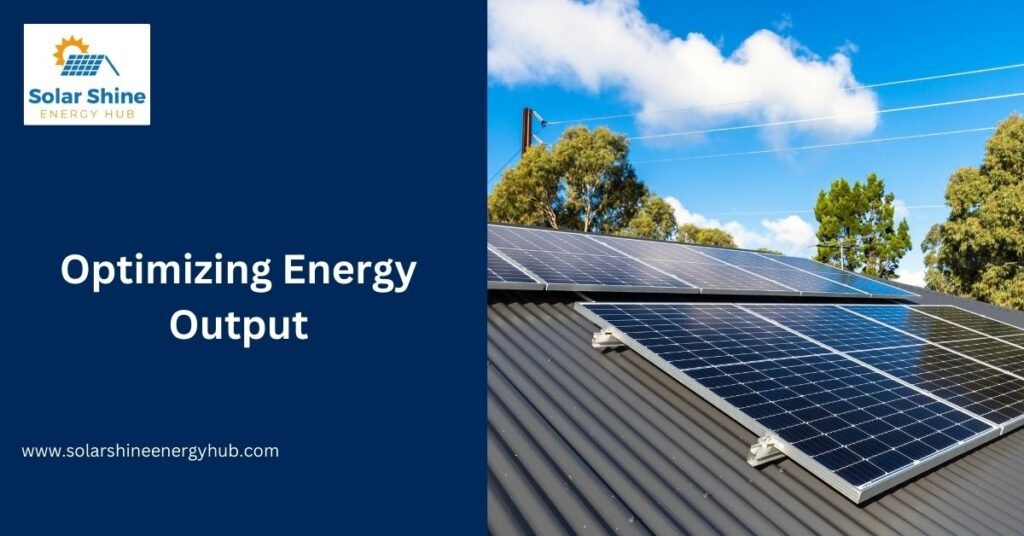
- Smart meters are integral to a solar cell’s energy set-up, providing real-time information about power usage and efficiency. They offer an easy way to monitor and manage your energy consumption.
- Wi-Fi connectivity in solar panel systems can enhance monitoring and control. It allows you to check your system’s performance remotely and make necessary adjustments.
- Utilizing an energy management system can provide additional functionality. It can automate your household appliance’s operation during peak solar energy generation, maximizing your solar investment.
- For those living in areas prone to power outages, solar panels paired with a good battery storage system ensure a continuous power supply, providing independence from the grid.
- Investing in high-quality solar panels will ensure optimal output and durability, reducing the need for frequent replacements and making the investment more cost-effective in the long run.
Financial Considerations & Savings
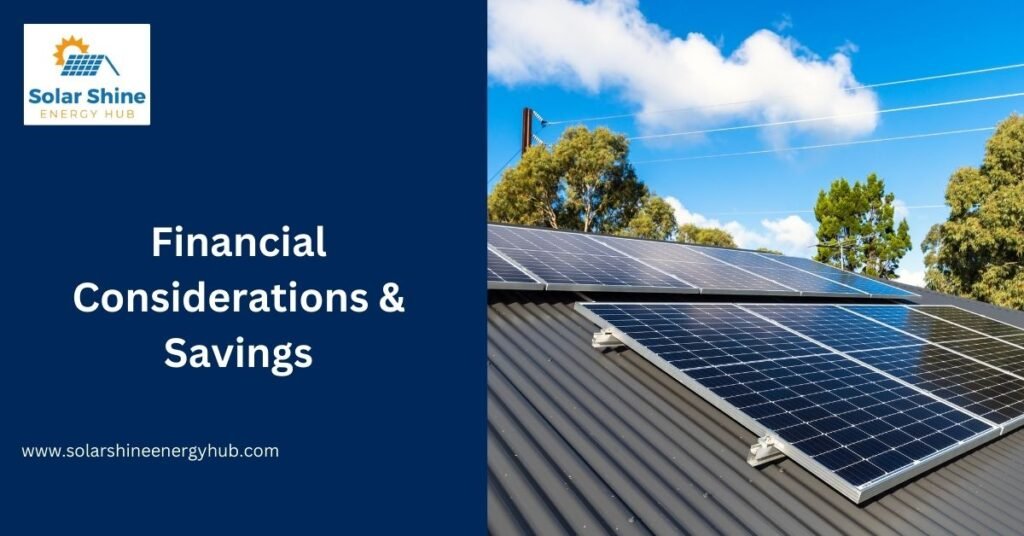
- Solar power can provide significant financial savings over time by drastically reducing, if not eliminating, your electricity bills.
- By being energy independent, you’re less affected by increases in the source of electricity tariffs, providing a hedge against energy inflation.
- Depending on the region, various government incentives, grants, or rebates may be available to offset the initial costs of a solar energy installation.
- Surplus power generated by your solar panels can often be sold back to the grid, providing an additional source of income.
- While the upfront costs can be substantial, the long-term savings and the increase in property value typically offset this initial investment, making solar energy a financially sound choice.
Conclusion Do you need wifi for solar panels
In conclusion, solar energy provides an efficient, cost-effective, and sustainable solution for homeowners. The initial investment in a solar panel system is balanced by considerable savings, increased property value, and potential income from grid export. Moreover, with advancements in technology, you have enhanced control over your energy generation and consumption. Transitioning to solar power is not just a personal gain, it’s a stride towards a more sustainable world. Embrace solar energy, and let the sun empower your home.